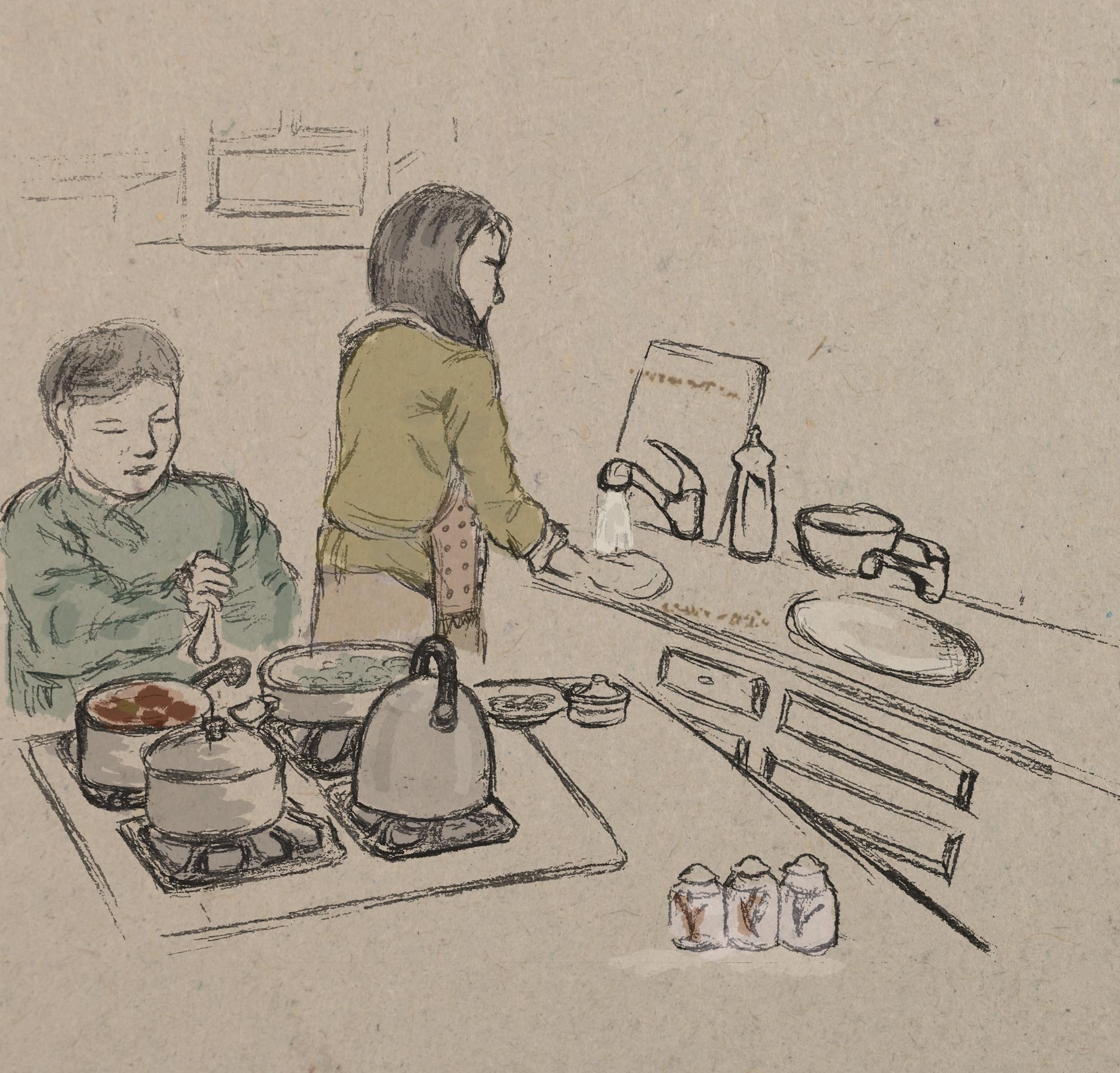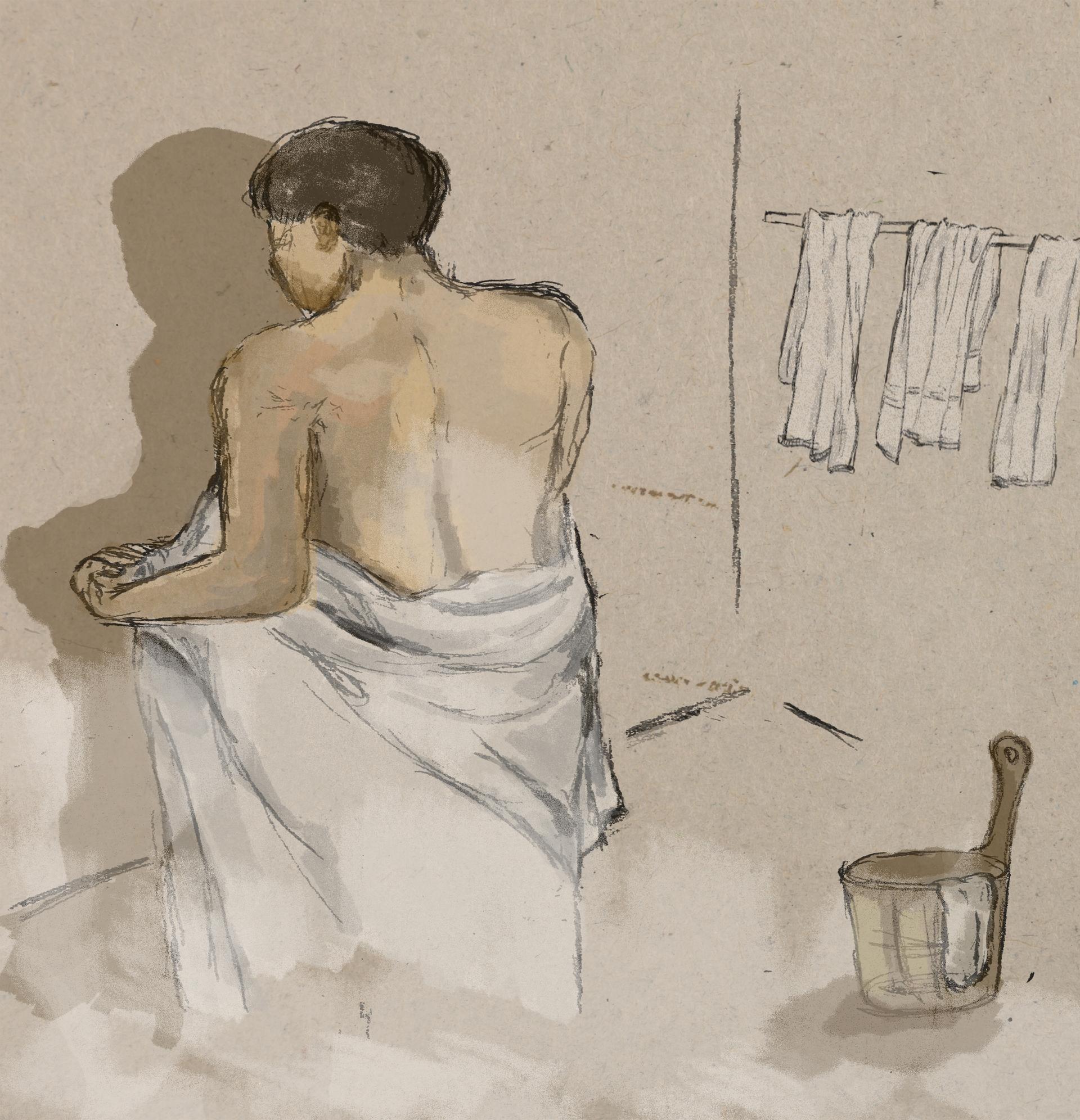This gay Chinese man passed on his HIV infection to his wife. But she doesn’t know that.
When HIV first emerged in China, it was largely transmitted through blood transfusions. China managed to contain an epidemic that broke out in the 1990s, but now HIV rates are on the rise again.
This time, it’s among gay men. Last year, men who have sex with men accounted for about 28 percent of all new HIV infections in China.
That includes gay men who are married to women.
Maitian lives in Chengdu with his wife. They have been married for 20 years and have an 18-year-old son. Maitian is not his real name. He asked us to use a pseudonym because he is gay and HIV positive.
Maitian says shortly before he got married, he started exploring his sexuality. At the time, homosexuality was punishable under the crime of “hooliganism.” In 1997, China eliminated the crime of hooliganism, and homosexuality was in effect decriminalized. Four years later, it was removed from a list of mental illnesses in China.

Zhang Beichuan, a professor at Qingdao University's Medical School who researches gay issues, estimates that China is home to more than 21 million gay men, and more than half of them are married to women.
Maitian says he always expected that he would get married and raise a child. Living with a man was out of the question for him. Although there are young gay Chinese who live openly in big cities like Beijing and Shanghai, they are still a small minority.
“I think that is only for the privileged,” Maitian says. “We are just common people and we have a lot of everyday business to take care of. Our parents and our siblings are concerned about how we lead our family lives.”
Maitian says he stayed in his traditional marriage, but he continued to meet up with men.
The first time he went to a gay bathhouse in Chengdu, he says someone gave him an address and he found the place on his own. He says he was amazed that it was filled with men like him. He soon became a regular.
“I got what I wanted,” Maitian says. “And it didn’t cost much. I was satisfied.”
He says he didn’t use condoms at the bathhouse.

According to the Chinese Center for Disease Control and Prevention, the rate of HIV among gay men in China was about 8 percent in 2015. That’s up from 1.3 percent in 2004. Among the concerns about the rising rates are that gay married men with HIV would transmit the virus to their wives.
In 2009, Maitian went in for some minor surgery at a local hospital, and they gave him an HIV test. Maitian tested positive, though he says he didn’t even know what HIV was. He went back home and searched online and found photos of people with HIV who had lesions all over their bodies. Maitian says he felt scared and helpless. Later, he joined an online support group for people living with HIV, which helped him deal with his fears.
Related: To win the war against AIDS, China must talk about gay sex
Local health officials pressed Maitian to bring in his wife for testing. But it took him a year to tell his wife that she should get an HIV test. He says she nearly broke down when she learned she had HIV. She couldn’t believe it.
Confronted with the dilemma of whether to tell his wife about his secret life, Maitian chose to shift the blame.
“Our son was born in 1997 via C-section and she had to have a blood transfusion. So I said it must be from that. And she believed it,” Maitian says.
Over the years, Maitian says his wife has more or less accepted the transfusion explanation. There were moments when she asked him why their son tested negative for HIV, and he pointed out that their son was not breastfed. He says she never really asked him again how they both became infected. Now Maitian and his wife are on medication and are relatively healthy. But it hasn’t been easy.
“HIV is not like other diseases. It’s a lifetime disease. It takes a great toll on our bodies,” Maitian says.
“I feel very guilty for my family and for my wife. As much as I can, I think I should do more for my family and for her.”
But there is one thing Maitian doesn’t plan to do: Tell his wife that he is gay.
When HIV first emerged in China, it was largely transmitted through blood transfusions. China managed to contain an epidemic that broke out in the 1990s, but now HIV rates are on the rise again.
This time, it’s among gay men. Last year, men who have sex with men accounted for about 28 percent of all new HIV infections in China.
That includes gay men who are married to women.
Maitian lives in Chengdu with his wife. They have been married for 20 years and have an 18-year-old son. Maitian is not his real name. He asked us to use a pseudonym because he is gay and HIV positive.
Maitian says shortly before he got married, he started exploring his sexuality. At the time, homosexuality was punishable under the crime of “hooliganism.” In 1997, China eliminated the crime of hooliganism, and homosexuality was in effect decriminalized. Four years later, it was removed from a list of mental illnesses in China.

Zhang Beichuan, a professor at Qingdao University's Medical School who researches gay issues, estimates that China is home to more than 21 million gay men, and more than half of them are married to women.
Maitian says he always expected that he would get married and raise a child. Living with a man was out of the question for him. Although there are young gay Chinese who live openly in big cities like Beijing and Shanghai, they are still a small minority.
“I think that is only for the privileged,” Maitian says. “We are just common people and we have a lot of everyday business to take care of. Our parents and our siblings are concerned about how we lead our family lives.”
Maitian says he stayed in his traditional marriage, but he continued to meet up with men.
The first time he went to a gay bathhouse in Chengdu, he says someone gave him an address and he found the place on his own. He says he was amazed that it was filled with men like him. He soon became a regular.
“I got what I wanted,” Maitian says. “And it didn’t cost much. I was satisfied.”
He says he didn’t use condoms at the bathhouse.

According to the Chinese Center for Disease Control and Prevention, the rate of HIV among gay men in China was about 8 percent in 2015. That’s up from 1.3 percent in 2004. Among the concerns about the rising rates are that gay married men with HIV would transmit the virus to their wives.
In 2009, Maitian went in for some minor surgery at a local hospital, and they gave him an HIV test. Maitian tested positive, though he says he didn’t even know what HIV was. He went back home and searched online and found photos of people with HIV who had lesions all over their bodies. Maitian says he felt scared and helpless. Later, he joined an online support group for people living with HIV, which helped him deal with his fears.
Related: To win the war against AIDS, China must talk about gay sex
Local health officials pressed Maitian to bring in his wife for testing. But it took him a year to tell his wife that she should get an HIV test. He says she nearly broke down when she learned she had HIV. She couldn’t believe it.
Confronted with the dilemma of whether to tell his wife about his secret life, Maitian chose to shift the blame.
“Our son was born in 1997 via C-section and she had to have a blood transfusion. So I said it must be from that. And she believed it,” Maitian says.
Over the years, Maitian says his wife has more or less accepted the transfusion explanation. There were moments when she asked him why their son tested negative for HIV, and he pointed out that their son was not breastfed. He says she never really asked him again how they both became infected. Now Maitian and his wife are on medication and are relatively healthy. But it hasn’t been easy.
“HIV is not like other diseases. It’s a lifetime disease. It takes a great toll on our bodies,” Maitian says.
“I feel very guilty for my family and for my wife. As much as I can, I think I should do more for my family and for her.”
But there is one thing Maitian doesn’t plan to do: Tell his wife that he is gay.